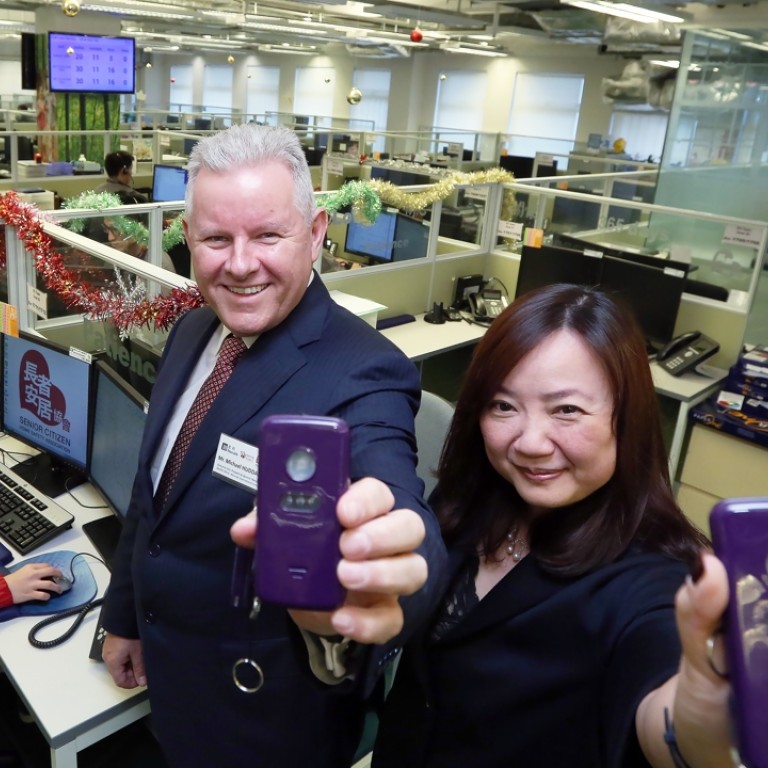
With mobile device, Hong Kong elderly can have help at their fingertips
Insurance company Manulife funds service for 100 underprivileged sufferers of dementia
With the push of a single button, a flustered domestic helper was able to get immediate assistance for an 85-year-old woman whose arm was in pain.
“You don’t have to worry any more, an ambulance is on its way,” said a worker at an elderly assistance call centre in a clear and calm tone over the phone.
A handheld device, which uses mobile positioning technology, connects elderly people to the Senior Citizen Home Safety Association’s 24-hour care centre through a one-click help button.
READ MORE: Operation Santa Claus choir in strong voice for fundraising drive
Around 100 underprivileged elderly people suffering from dementia will be able to use the device funded by international insurance company Manulife through Operation Santa Claus – an annual fundraising project organised by the South China Morning Post and RTHK.
“I thought this provided a very direct service to help people when they needed help, and they’re only a buzzer away from getting that help,” said Michael Huddart, Manulife executive vice president and general manager, Greater China.
The company, which is supporting Operation Santa Claus for the 12th year, said the association’s work fits well with their mission and philosophy.
“Health and wellness are two key focuses at this point and time, and [the device] really does help people stay healthy,” Huddart said.
“It also helps with their well-being because quite a few of the calls are from people who just need to talk to someone.”
Out of the 2,000 calls the centre receives daily, only four to five per cent are emergency requests – most are from elderly people who are seeking information about the weather or who need someone to talk to, according to the organisation.
READ MORE: Operation Santa Claus to fund mobile devices to help Hong Kong dementia sufferers who get lost
The latest version of the Mobile Link consists of two devices – one for the elderly person and the other for a caregiver. A gadget the size of a mobile phone, it provides a greater sense of security to both the patient as well as the caregiver, who is reminded to check on the elderly person as soon as the two units are 10 to 15 metres apart.
“Elderly people suffering from dementia sometimes cannot be traced when they get lost … A missing person case is reported to us every two days on average,” said Irene Leung Shuk-yee, the association’s CEO.
Mobile Link was originally a home-based emergency service, Leung said, but it was extended outdoors in 2010 due to the emergence of a new generation of active and relatively tech-savvy elderly.
Around 80,000 people have used the devices since the association was established in 1996.

